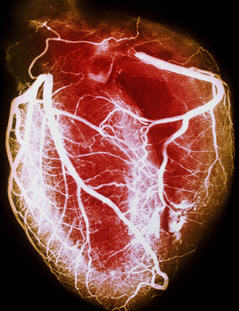Heart attack Prevention
Heart Attack Risk Factors
- High-carbohydrate diet: drives excess insulin production, high triglycerides, and conversion of VLDL into dangerous small, dense LDL.
- High-PUFA (Polyunsaturated Fatty Acids) Diet: promotes oxidation and inflammation, allowing small, dense LDL to damage arteries.
- Statin Use: compromises cellular energy production (depleted CoQ10), damages muscles and liver, and lowers HDL.
- Exercise: Not enough promotes insulin resistance as a SAD sugar burner when eating in the sugar-burning zone, or too much produces excessive cortisol and oxidative stress.
- Genetics: Predispositions are usually only relevant when combined with adverse lifestyle (insulin, chronic exercise, stress) practices.

Heart Attack Prevention Tips
- Eliminate Processed Carbs: moderates insulin, lowers triglycerides, raises HDL.
- Eliminate PUFAs: reduces oxidation and inflammation
- Increase Saturated Fat Intake: raises HDL
- Eat Healthily: moderates insulin, balances Omega-6/Omega-3 ratio, boosts antioxidants
- Exercise: raises HDL, lowers triglycerides, lowers small, dense LDL.
- Moderate stress: sleep, sun, play- reconnect with genetic requirements for health!
- Blood tests: Focus on triglycerides, fasting blood glucose and insulin, LDL particle size (small, dense LDL), and C – reactive protein (key marker of systemic inflammation).
The Framingham Heart Study and Nurses Health Study, two of the largest and most comprehensive studies of diet and health ever conducted, report no correlation between dietary cholesterol intake and blood cholesterol levels, no correlation between blood cholesterol levels and heart disease, and no correlation between saturated fat intake and heart disease. These conclusions refute the premise of statin use, another example of Conventional Wisdom addressing symptoms and disrespecting causes and context (i.e. – eating in the sugar-burning world).
Statins are the world’s best-selling prescription drug, and arguably do more harm than good on the whole. Statins indeed slash your cholesterol total across the board (even those beneficial HDLs unfortunately) in short order, but they also produce highly objectionable side effects. Statins deplete your cells of Coenzyme Q10, a critical nutrient for mitochondrial energy production. Consequently, statin users commonly experience muscle pain and weakness, liver dysfunction and chronic fatigue. Furthermore, statin use has no effect on triglyceride levels or LDL particle size, and is perhaps most effective for its marginal benefit as a mild anti-inflammatory agent. An even more profound anti-inflammatory effect, however, can be achieved through proper diet and exercise. This negates any rationale for taking statin drugs. Unfortunately, many well-intentioned folds with heart attack risk factors from their familial genes and SAD diets, and who are most in need of exercise and HDL scavenging, actually increase their mortality risk by taking statins and ignoring the root causes of heart disease.
-from 21day-totalbody-transformation

